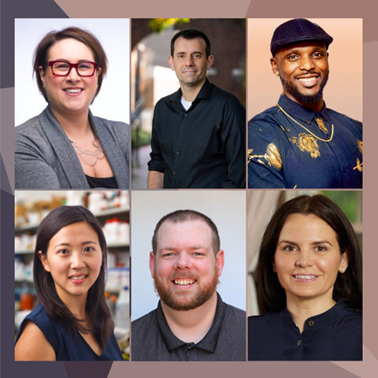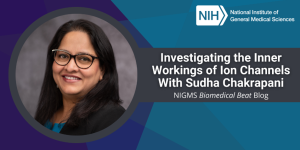To celebrate the 2024 National Postdoc Appreciation Week, we’re revisiting some scientists we’ve interviewed on the blog and how their postdoctoral experiences and NIGMS-funded training shaped their careers.

Postdoctoral research is an extra level of training beyond Ph.D. work. Although not all biomedical science careers require it, postdoctoral research is often essential for people wanting to become academic research professors. And some researchers find it very helpful as they explore their next steps after graduate school.
- Mia Huang, Ph.D., credits her postdoctoral work with addressing gaps in her training and solidifying her interest in becoming a professor.
- Ahna Skop, Ph.D., chose to do a series of short postdoctoral positions with the goal of gaining a deep understanding of a very specific scientific topic: the midbody produced during cell division. When she started her own lab, she continued this work studying the midbody and its role in cells.
- Jeff Mugridge, Ph.D., used his postdoctoral work to learn a new field. “After my Ph.D., I decided to leave the field of chemistry to study biochemistry and structural biology as a postdoctoral researcher,” he says. “Changing fields was hard—I didn’t take many biochemistry classes while I was an undergrad, so I had to read a lot to learn the basics of biochemistry. I also had to learn a whole new set of lab techniques. It almost felt like I was starting over, but my postdoc advisor was very supportive and understanding of my transition because he’d made a similar switch earlier in his own career.”
NIGMS supports programs that provide scientific training at many levels, including pre-K through high school, undergraduate, graduate, postdoctoral, and early career. We’ve interviewed scientists who credit these programs as being instrumental to their success.
- Jesse Hall, Ph.D., supported by NIGMS training programs as a high school and undergraduate student, is now a postdoctoral researcher. “The [NIGMS-funded] programs gave me a sense of belonging and an avenue to better myself through education,” he says. “They give people like me, first-generation college graduates, a chance to pursue a career in science and make an impact in our communities.”
- Nkrumah Grant, Ph.D., was an NIGMS-supported postdoctoral researcher when we interviewed him, and he’s now an assistant professor. As he looks back on his career so far, Dr. Grant is proud of the scientific advancements he’s made and the personal choices that enabled them: “My trajectory was so jagged, but I’ve gotten on the right path. And I’m proud that I’ve stayed true to myself and my roots during that journey.”
- Caroline Palavicino-Maggio, Ph.D., says that becoming a Maximizing Opportunities for Scientific and Academic Independent Careers scholar was an important achievement in her career because it opened doors for her to start her own lab. “My biggest accomplishment is that I’m a researcher with my own lab,” she says. “I never thought I’d be here. It’s hard to see yourself in a role you’ve never been exposed to, and I didn’t know any scientists when I was a kid. I thought undergrad would be the end of my education, but it was only the beginning.”
Other Posts You May Like
- Understanding Signaling Through Cell Membranes: Q&A With Chrystal Starbird
- Bil Clemons: Following Scientific Curiosity
- From Science Fair to Science Lab: Q&A With Chelsey Spriggs
- Haley Bridgewater: Taking the Sting Out of Vaccines
- Investigating the Inner Workings of Ion Channels With Sudha Chakrapani







